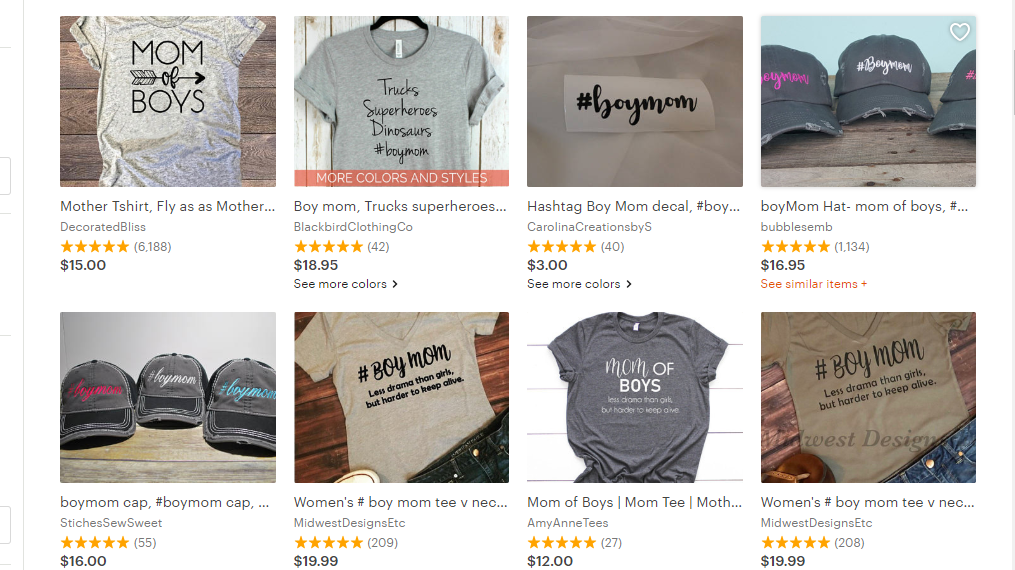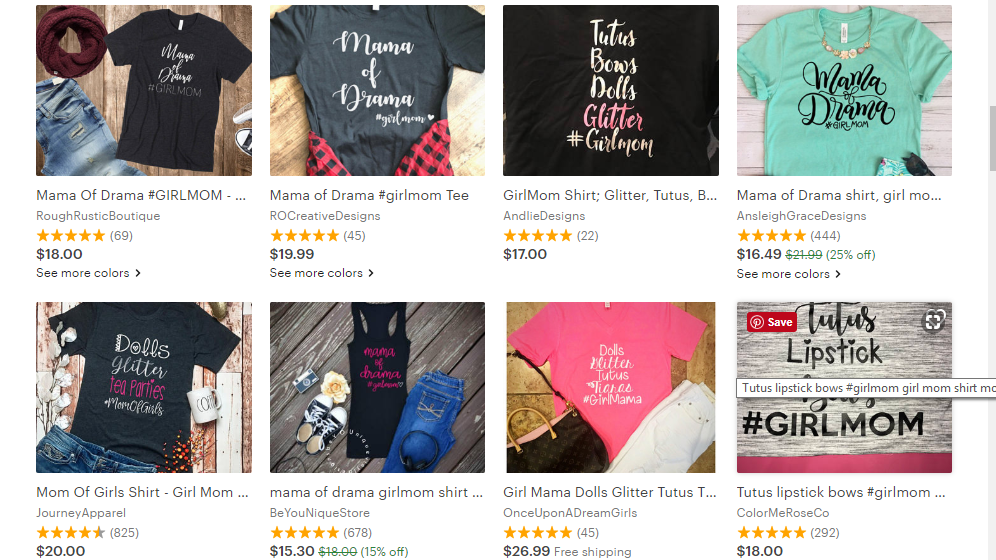 First it was the stay-at-home moms vs. working moms.
First it was the stay-at-home moms vs. working moms.
Then it was breastfeeding vs. bottle-feeding.
Now it’s girl mom vs. boy mom.
Do we really need another artificial divide to encourage competition and weaken the sisterhood?
Apparently it’s not enough that each day women experience growing battles with our health care, safety, capacity to provide for our families, and ability to raise children in a world that undervalues women and caregiving.
Now we have another way to weaken the bonds of motherhood and parenthood – a bond rich with potential for shared challenge, love, and pain. All in the name of perpetuating silly gender stereotypes.
Can we stop the ridiculousness?
The girl mom vs. boy mom phenomenon buys into outdated stereotypes
Birthed largely by social media, this girl mom vs. boy mom concept thrives on 1950s versions of who children should be, based on their genitalia. The pink and blue expectations that accompany our gender reveal parties and baby showers underlie this new competition.
A “humorous” video went viral on Facebook last week, garnering 18 million views and more than 250,000 shares. If you don’t want to sit through the stifling stereotypes, it goes a little like this: the “boy moms” are harried, ponytail-sporting moms in t-shirts and ripped jeans who bark orders at their kids, clean up endless messes, expect the worst, and drink lots of wine. The “girl moms” have beautifully straight blown-out hair, cute outfits, quiet voices, and enjoy chic picnics while their daughters play quietly alone.
I expected some kind of twist; some clever commentary on the joys and battles of raising children.
Related: 7 Ways to Parent without Stereotypes
Instead the video served up some uncreative, old-school gender stereotypes: boys are messy and fight a lot, pee outside, and don’t listen to their parents, while girls are sweet and cooperative, easy to manage, clean and proper; so easy to raise as young children that their parents’ lives are exactly the same as pre-kid.
Are you serious?
That was actually my first comment on this video. Get a sense of humor, some will say. But friends with children, both of boys and girls, contacted me quickly with annoyance and irritation:
“Right, my life is scored by soft music and my hair is always perfect.”
“I was fuming.”
“Three girls and my life is exactly as described for being a boymom.”
“I was so mad I couldn’t finish watching it.”
“Right, I’ve never had to tell my daughter to put her shoes on 10 times!” (This was me.)
These identities for moms spring from a belief that boys and girls are born a certain way based on what’s between their legs. It’s easier not to acknowledge our inherent bias – adults give toys to babies (babies!) based on how they’re dressed, even when they’re faking it. We speak to our children differently, based on their sex. And we make assumptions about what they will and won’t like; what they’ll succeed or fail at because of their sex.
More: Boys and femininity: what are we so scared of?
It’s easier to pretend that grandparents don’t buy princess gowns only for girls, or that dads refuse their sons to sign up for dance class. Or that most adults speak to babies differently, based on their sex. Or that we have no choice as to whether our children play with weapons or not.
What does it mean to be a girl mom vs. boy mom?
Peruse Instagram and Etsy and you’ll find lots of similar gender stereotypes. If you don’t know what I’m talking about, check out tags for #girlmom and #boymom on Instagram.
This is what you’ll see.
#Girlmom or #girlmomproblems = a few mommy and me manicures, doing hair, lots of hair bows, girls in cute outfits doing a variety of things, a couple tutus and princess costumes, but mostly kids doing normal things. And interestingly, lots of moms working out.
#Boymom or #boymomproblems = messy house jokes, “Future Explorer” onesies, kids running in the dirt, comments about children climbing all over furniture, a few cute clothes shots, and more moms working out.
Related: my love-hate relationship with pink
The tee shirts are worse.
A friend recently complained to me about the shirts she saw that implied that boys are the only ones who like sports.

Etsy screenshot
“Mom of boys: less drama than girls, but harder to keep alive.” Harder to keep alive? Are you kidding me?
“Boymom. Messy buns. Yoga pants. Dirt stains.”
“Trucks, Superheroes, Dinosaurs. #Boymom.”
The ones for girl moms were less descriptive, like “Girl mommin'” or “Mom of Girls,” which is funny in a benignly obvious way – what if we walked around with a “Parent of Humans” shirt on?

Etsy screenshot
“Mama of drama: #girlmom”
“Tutus, bows, dolls, glitter, #girlmom”
“Dolls, glitter, tea parties: #MomOfGirls”
Related: Why we should stop labeling kids
Why gender categorizations for parenting are ridiculous
Several people will admonish me to have a sense of humor.
Sure, sure, we can laugh on the surface, but the “Girl mom vs. Boy mom” video falsely argues that parenting and raising children will be a wildly different experience based on the sex of your child.
Here’s the real truth.
My child is a girl. She also picks boogies and waves them in the air. She eats a lot and talks a lot. She passes gas and yells to notify us. She runs in circles around our house and says she needs to “get her energy out.” She loves bright colors and dresses.
She adores slides, trucks, and jumping in puddles. She cherishes books and crafts. She hates to be alone. She thinks poop is hilarious.
But more specifically, I’m a “Girl Mom” of a toddler.
That means I pick up messes all day. I give my kid kisses. I can’t make a phone call in peace. I constantly battle my own frustration in the face of tantrums, hits, and kicks. I often have a little visitor when I go to the bathroom. I sing and dance in the kitchen. I struggle to maintain composure when she yells “NO!” and throws toys. I often look disheveled with leggings and messy hair.
Life with a girl does not equal rainbows and peace and tea parties and fashion plates. The last time my kiddo had a little girl come over to play, they ignored the toys and ran in circles around the house. ‘Cause that’s what toddlers do.
Related: Why I don’t want my kid to be polite
Similarly, several friends with ‘tween boys report emotional roller-coasters previously considered the sole territory of girls, closing the book on notions that adolescent and teenage boys are “easy.”
Let’s unite, not divide.
Of course, “girl dad” vs. “boy dad” doesn’t really exist. Let’s pause and ask why. Why do we define men less as to whether they are parents or not? And why does society have more fun creating competition between women?
Much more important than my status as a mother of a girl, quite simply, is being a parent.
We bond with other parents about the immense difficulties of toddlerhood. We exchange knowing and sympathetic looks with parents of young children in stores and airports. And lend a hand when we can. We trade texts with college friends about potty training and skipping naps.
This is because we, as parents, have more similarities than differences.
Parenting is freakin’ hard. Reaching out to connect with other mothers in my town and on social media has fueled and sustained my ability to survive long days with my spirited child.
Let’s stop pretending that our parenting experiences are shaped most prominently by the pink or blue baby cap, or that our children are defined first and foremost by their anatomy.
Be brave enough to challenge the humor and the stereotypes…because we don’t need more divisions; we need each other.

This article is so needed. I have both boys and girl and on any given day you may not even be able to tell them apart gender-wise (and definitely not noise or mess-wise). We have GOT to stop this horrible gendering of the kids AND the mums! It’s just not like that in real life…
We sure do! Thanks for the comment Cat. This narrative is so unhelpful for our kids- and for us!
Love this article so much. I have two girls and don’t find them to fit stereotypical girl attributes and I have plenty of girlfriends with boys the same age and find that all kids are more similar than different especially as 4 year olds! Why can we all just be #humanmoms??!! I hate that we want to put children in gender role boxes before they are even born. I’ve never understood gender reveal like are you supposed to have a certain reaction based on the gender ? It’s like congrats you are pregnant with a……. human child!
I hear you Angela! Thanks for the comment. It is sort of baffling how society wants to label children so young. We’re supposed to know everything about them from their genitalia, apparently! Love your hashtag. I’ve been trying to get #parentofhumans trending for a while now 🙂
Boy mom/Girl mom labels make me naseauted. I have five children.. 2 boys, 3 girls. My rowdiest, messiest, toughest kids I have are my youngest girls. They fist fight if not quickly intervened, the are athletic, extremely competitive, and outspoken. My oldest daughter and youngest son are both level headed, soft spoken, cautious, mature, thoughtful, great listeners, and overall almost perfect. My older son is stubborn, a trouble maker, and sooo dramatic. It’s not a boy – girl issue. It all depends on their personalities!
No offense but when you’re the mom of a boy you’ll understand. I found this article short sighted and idealistic. Actually it sounded a lot like me before I had a boy. Lemme tell you the boy mom girl mom video was spot on.
I do agree however with uniting and not dividing the sisterhood but there are some serious differences between raising boys vs raising girls. I wish it wasn’t this way but from my experience, it is
Thanks for engaging in the conversation, Danielle. We all have different experiences, all of them unique. I personally didn’t identify with anything that “girl moms” are supposed to be like. Sorry to hear that you found my piece short-sighted, because that’s exactly how I felt about the video. It was much too simplistic and unoriginal for me. I believe wholeheartedly that all of our children are much more complicated and complex than we give them credit for, and cannot be reduced to a narrow set of characteristics based upon genitalia. It’s also impossible to separate out the socialization from biology – from the way we speak differently to our babies, to the kinds of words we use, the tone of voice, and the expectations that we have for each sex. Until we can separate those things, we may never truly know for sure!